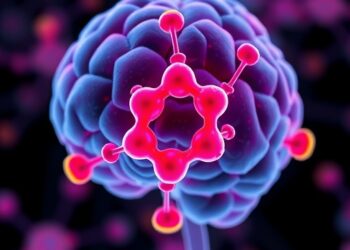ITHACA, N.Y. — A decline in estrogen during menopause causes changes in body fat distribution and associated cardiovascular and metabolic disease, but a new study identifies potential therapies that might one day reverse these unhealthy shifts.
ITHACA, N.Y. — A decline in estrogen during menopause causes changes in body fat distribution and associated cardiovascular and metabolic disease, but a new study identifies potential therapies that might one day reverse these unhealthy shifts.
The study, “Cxcr4 Regulates a Pool of Adipocyte Progenitors and Contributes to Adiposity in a Sex-Dependent Manner,” was published Aug. 5 in Nature Communications.
The researchers discovered that a receptor called Cxcr4, when blocked in mice, reduced the tendency of fat stem cells to develop into white fat, also called white adipose tissue. This treatment could potentially be combined with low doses of estrogen therapy to cut changes in body fat distribution in menopausal women and protect against cardiometabolic disease. Under normal circumstances, estrogen therapy requires higher doses to be effective, which also raises a patient’s risk of breast cancer.
“We’re starting to understand how fat is formed between male and female individuals and this allows us to think differently about the obesity epidemic,” said Daniel Berry, assistant professor of nutritional sciences in the College of Human Ecology. “If we think about white adipose tissue expansion, then what are the mediators of this? And then, can we target these mediators to have beneficial effects and maybe these targets are going to be completely different between males and females.”
Researchers have known for years that sex hormones – testosterone and estrogen – play roles in regulating fat development. Estrogen normally facilitates “healthy” subcutaneous fat, which is metabolically protective. When estrogen is removed, such as during menopause, women lose their “healthy” fat and they have an increase of “unhealthy white fat, which is where extra calories are stored. “That’s how women start to develop cardiometabolic diseases in their 50s,” Berry said.
In the study, Berry and colleagues, including first authors Benjamin Steiner, Ph.D. ’22, formerly in Berry’s lab; Abigail Benvie, a doctoral student; and Derek Lee, ’21, M.S. ’23, both current members of Berry’s lab, focused on the chemokine receptor Cxcr4, which is known for its ability to attract stem cells and hold them in microenvironments as they mature. These stem cells can become different types of tissue. Some of them receive signals and commit to becoming adipocytes (fat cells). This entire process of a stem cell committing to and becoming a fat cell is referred to as the adipose lineage –the cell’s history from stem to fat cell.
The team used an engineered mouse that allowed them to delete Cxcr4 within this adipose lineage, thereby removing the receptor. They found that when Cxcr4 was deleted, the male mice had only slight reductions in white fat tissue. But when they examined the female littermates, they found a lack of white fat tissue.
Knowing that Cxcr4 regulates stem cell biology, the researchers then checked whether deleting the receptor led stem cells to be more or less committed to becoming white fat cells.
“When we deleted Cxcr4 we found that the stem cells were less committed to the adipose lineage in female mice, and they appeared to be hypersensitive to estrogen therapies,” Berry said. The latter finding suggests that lower doses of estrogen therapy could prove effective in the absence or pharmacological inhibition of Cxcr4.
“This led us to the idea that we’ve changed the adipose lineage dynamics,” Berry said, “and we think that estrogen is mediating this activity.”
To test this, the team then removed the ovaries, which produce estrogen, from these female mice. “We saw that their fat came back when we removed estrogen from their bodies,” he said.
The finding offers promising avenues for further understanding how healthy and unhealthy fat tissue develops from stem cells, which could one day help address the obesity epidemic. It also offers a direction for reducing unhealthy white fat in postmenopausal women, by blocking Cxcr4 and then administering low-dose estrogen therapy that limits the detrimental side effects of breast cancer. Such a therapy could also prevent cardiovascular and metabolic diseases associated with excess white fat tissue.
Yuwei Jiang, an assistant professor at the University of Illinois at Chicago, is a co-author.
The study was funded by Cornell and by the National Institute of Diabetes and Digestive and Kidney Diseases, part of the National Institutes of Health.
-30-
Journal
Nature Communications
Article Title
Cxcr4 regulates a pool of adipocyte progenitors and contributes to adiposity in a sex-dependent manner
Article Publication Date
5-Aug-2024




